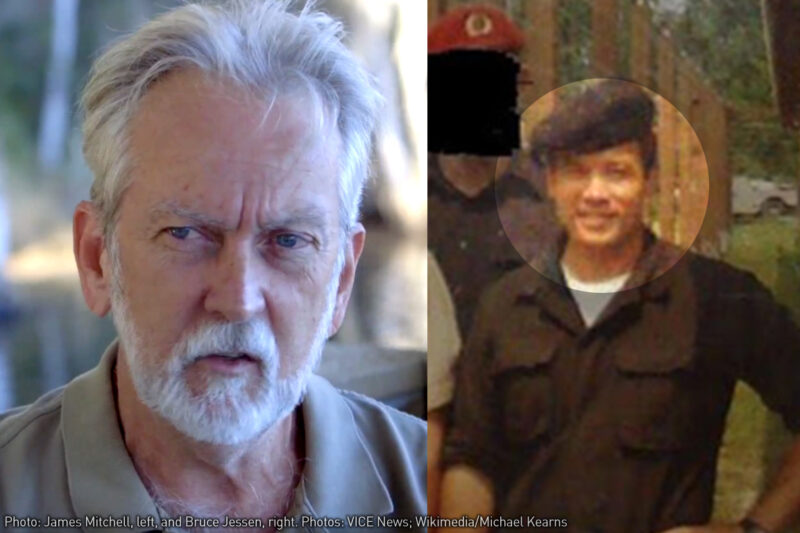The Government’s Unprecedented Position in CIA Torture Lawsuit Is Very Good News


Update (4/22/16): In a huge win for our side, the federal judge in Spokane, ruling from the bench, denied Mitchell and Jessen's motion to dismiss. Now we enter discovery. This is the first time a CIA torture case moves past this stage.
Those responsible for the CIA torture program have never had to face their victims’ claims in a U.S. court because the government has always shielded the perpetrators. Until now.
Next week, three victims of the CIA’s post-9/11 torture program are taking a critical and unprecedented step in seeking accountability from the men who devised their torture. On April 22, a federal court in Spokane, Washington, will hear the ACLU’s argument on behalf of Suleiman Abdullah Salim, Mohamed Ahmed Ben Soud, and the family of Gul Rahman. They have sued James Mitchell and John “Bruce” Jessen, the psychologists who teamed up with the CIA to design, implement, and oversee the agency’s torture program, which ensnared at least 119 men from its inception in 2002 until it was shuttered in 2008.
In every previous lawsuit by CIA victims, the Bush and Obama administrations invoked the “state secrets privilege” to shut down cases before they even got underway. Despite voluminous information in the public record, the government insisted that the very subject matter of the cases — CIA torture — was secret and its lawfulness could not be considered by the courts.
But not this time. Instead of invoking state secrets at the outset, the government said in a court filing last week that it is willing to consider “protective measures” to safeguard its interests while still allowing the case to go forward. This has never happened before — and it means that CIA torture survivors may finally get their day in court.
We almost certainly have the Senate torture report to thank. The government’s shameful use of secrecy was unjustified in previous cases, but the public release of the Senate Intelligence Committee’s official report on CIA torture makes it untenable now. Demonstrating that this case does not rely on any facts that could be considered “secret,” the government publicly confirmed in the same filing — for the first time — that Mitchell and Jessen “served as CIA contractors in the detention and interrogation program.”
Without claims of state secrets to shield them, Mitchell and Jessen have made extreme arguments to try and keep their victims out of court. They have argued that torture is a “political question” and that courts have no role in judging whether it is unlawful. But as we will argue next Friday, torture isn’t politics — it’s a war crime.
Mitchell and Jessen also argue that, as federal contractors, they’re immune from any accountability to their victims — even though they personally made millions of dollars from CIA torture. As we will tell the court and have previously explained, that just isn’t true. Contractors don’t share the government’s immunity from suit because they face a completely different set of incentives and restrictions than government employees. As contractors, Mitchell and Jessen took millions of taxpayer dollars for their role in the torture program; they don’t get impunity.
Torture victims have waited a long time for justice. Friday’s hearing is a long-delayed step towards the accountability our clients deserve.


